Have you been struggling to get an employment visa in Germany but don’t know where to start? Germany is a leading force in Europe’s economy, and people all across the globe love to work here. A good job, outstanding healthcare, and a high standard of living make Germany a no-brainer choice. However, without a Germany work visa requirement guide, you can’t make it happen.
Fret not if you haven’t found the complete information on how to settle in Germany on an employment visa. This blog post will guide you through everything from understanding the type of visa to the process involved and the eligibility criteria.
So, without further ado, let’s get into the topic.
Who Needs a German Work Visa?
Not every foreign national needs a visa to work in Germany. If you are from an EU or EEA country or Switzerland, you’re exempt and can work freely in Germany. However, citizens of non-EU countries such as India, the USA, the Philippines, Nigeria, and Brazil must apply for a German work visa to gain employment.
Once you’re clear on having a work visa, the next step is to figure out different types of German employment visas.
Types of German Work Visas
Germany offers multiple visa options depending on your employment type. Here is a breakdown of different types of employment visas;
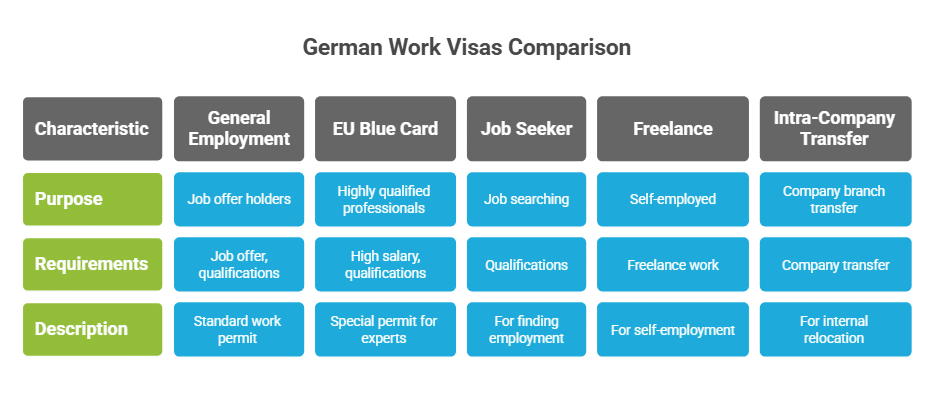
Each type has specific requirements, so it’s crucial to choose the correct one based on your career path.
If you’re a student, read this guide on German student visa requirements and expert tips.
General Eligibility Criteria for German Work Visa
Now that we know the types of visas, the next thing in German visa requirement guide is to know the eligibility criteria. Here are the key requirements:
- A confirmed job offer from a German employer.
- Relevant educational qualifications, usually a university degree recognized in Germany.
- Adequate financial means to support your stay during the visa processing period.
- Valid health insurance coverage compliant with German standards.
- Clean criminal record in both Germany and your home country.
These criteria are enforced to ensure that incoming workers are legally qualified and won’t become a burden on public resources.
Germany Job Seeker Visa Explained
The Job Seeker Visa is a fantastic option for individuals who do not have a job offer yet but are qualified professionals. It allows them to stay in Germany for up to six months to look for work.
To qualify, you must:
- Hold a recognized academic or vocational qualification.
- Have a minimum of five years of work experience.
- Show proof of funds to support yourself during your stay.
- Have travel or health insurance for the entire duration.
You cannot work on a Job Seeker Visa, but you can convert it into a work visa once employment is secured.
Work Visa vs EU Blue Card: Which One is Better?
The EU Blue Card is designed for highly skilled non-EU workers and offers several advantages over the standard work visa:
- Higher salary threshold: Starting in 2025, the minimum salary that someone can earn is €48,300. The minimum wage can be slightly lower for high-paying jobs or people just beginning their careers, at €43,759.80.
- Faster path to permanent residency: Blue Card holders can apply for permanent residency after 33 months, or 21 months with sufficient German language proficiency.
- Family reunification: An Easier and faster process for bringing family members to Germany.
However, the standard work visa may be more accessible for those not meeting the Blue Card criteria.
Germany Work Visa Requirement Guide: Things You Need
To proceed with German employment visa, here are the things you need to get started:
Your Documents
An important step in the German work visa requirement guide is to ensure you have the following documents:
- Valid passport.
- Job offer or employment contract.
- Recognized qualifications and certificates.
- Proof of financial means (e.g., bank statements).
- Health insurance coverage.
- Completed visa application form.
- Passport-sized photographs.
- Cover letter explaining your intent.
You might need additional documents based on your specific situation.
Photo and Biometric Specifications
Your application must include:
- Passport-sized photos: 35mm x 45mm, with a neutral facial expression and plain background.
- Biometric data: Fingerprints and a digital photograph taken during your visa interview.
Ensure your photos meet the specified requirements to avoid delays.
Health Insurance
Health insurance is mandatory for all visa applicants. You can choose between:
- Public health insurance: Available to employees earning below a certain threshold.
- Private health insurance is for higher earners or those not eligible for public insurance.
Your insurance must cover the entire duration of your stay in Germany.
Proof of Financial Means
You must demonstrate that you can support yourself during your stay. Acceptable proofs include:
- Bank statements: Showing sufficient funds.
- Blocked account: This is a special account where you deposit a fixed amount, which is released to you monthly.
- Sponsorship letter: From a sponsor in Germany who will support you financially.
The required amount varies but is generally around €947 per month.
German Language
Knowing German can help you find a job, even though it isn’t always required. In some fields, like healthcare, you might need to speak a bit of German to get hired. It’s a good idea to learn at least the basics so you can fit in more easily.
Now that you know things required to get started, let’s get to know how to apply for German work visa.
How to Apply for a German Employment Visa?
The application process involves several steps:
Secure a job offer from a German employer.
Check if your qualifications are recognized in Germany.
Gather required documents, including a passport, job offer, qualifications, and proof of funds.
Apply online through the Consular Services Portal or at your local German embassy or consulate.
Attend an interview and submit biometric data.
Wait for processing, which can take 1-3 months.
Receive your visa and travel to Germany.
Register your residence and apply for a residence permit upon arrival.
Where to Apply for a German Work Visa?
You can apply:
- Online: Through the Consular Services Portal.
- In-person: At your local German embassy or consulate.
Ensure you book an appointment in advance and check the specific requirements of your local mission.
Germany Work Visa Processing Time
Processing times vary but generally take 1-3 months depending on the embassy’s workload and the completeness of your application.
Applying well in advance of your intended start date is recommended.
Visa Fees and Payment Methods
As of 2025, the visa fee is:
- €75: For most applicants.
Payment methods vary by embassy, so check in advance whether they accept cash, credit cards, or bank transfers.
Common Mistakes in Work Visa Applications
Avoid these pitfalls:
- Incomplete applications: Missing documents can delay processing.
- Unrecognized qualifications: Ensure your degrees are recognized in Germany.
- Insufficient funds: Provide clear proof of financial means.
- Incorrect photo specifications: Follow the guidelines precisely.
Double-check all requirements before submission.
How to Find a Job in Germany Before Applying
To increase your chances:
- Use job portals, Such as Indeed, StepStone, and LinkedIn.
- Network: Attend job fairs and connect with professionals in your field.
- Engage recruitment agencies: Specializing in placing foreign workers.
- Research companies: Directly apply to companies in your industry.
Tailor your CV and cover letter to German standards.
Recognition of Foreign Qualifications in Germany
To work in regulated professions, your qualifications must be recognized. Use the Anabin database to check if your degree is recognized. If not, you may need to undergo an assessment or additional training.
Germany Skilled Immigration Act Overview
The Skilled Immigration Act, effective from March 2020, simplifies the process for skilled workers to move to Germany. Key features include:
- Easier recognition of foreign qualifications.
- Expanded access to the labor market for non-EU citizens.
- The introduction of the Opportunity Card allowed job seekers to enter Germany without a job offer.
This act aims to address labor shortages in various sectors.
Residence Permit After Work Visa
Upon arrival in Germany:
- Register your address at the local registration office.
- Apply for a residence permit at the Foreigners’ Office (Ausländerbehörde).
This permit allows you to live and work in Germany beyond the initial visa period.
Family Reunification with Germany Work Visa
You can bring your family members to Germany if:
- You have sufficient income to support them.
- Adequate housing is available.
- Health insurance covers all family members.
Spouses and children can apply for residence permits and may be allowed to work or study.
Renewal and Extension of German Work Visa
Another important thing in Germany work visa requirement guide is to extend your stay. For this, you’ve to:
- Apply before your current visa expires.
- Provide updated documents, such as a renewed employment contract.
- Demonstrate continued financial stability and health insurance coverage.
Extensions are typically granted if you continue to meet the eligibility criteria.
Permanent Residency Options After Working in Germany
After a specific period, you may be eligible for permanent residency:
- EU Blue Card holders: Can apply after 33 months, or 21 months with B1-level German proficiency.
- Other workers: Typically eligible after five years of residence and employment.
Permanent residency offers greater stability and access to social benefits.
Rights and Obligations While Working in Germany
As a worker in Germany, you have:
- Rights: Fair wages, safe working conditions, and social security benefits.
- Obligations: Paying taxes, contributing to social insurance, and complying with labor laws.
Understanding your rights and responsibilities ensures a smooth working experience.
Germany Work Visa Rejection Reasons
Common reasons for rejection include:
- Incomplete or incorrect applications.
- Unrecognized qualifications.
- Insufficient financial means.
- Lack of a genuine job offer.
You can appeal the decision or reapply after addressing the issue if rejected.
Wrap Up
Here, our Germany work visa requirement guide ends. Make sure you’ve complete information before getting started. Also, check the requirements beforehand to prepare while looking for jobs. Once you’ve the clarity, securing an employment visa in Germany will be easy!

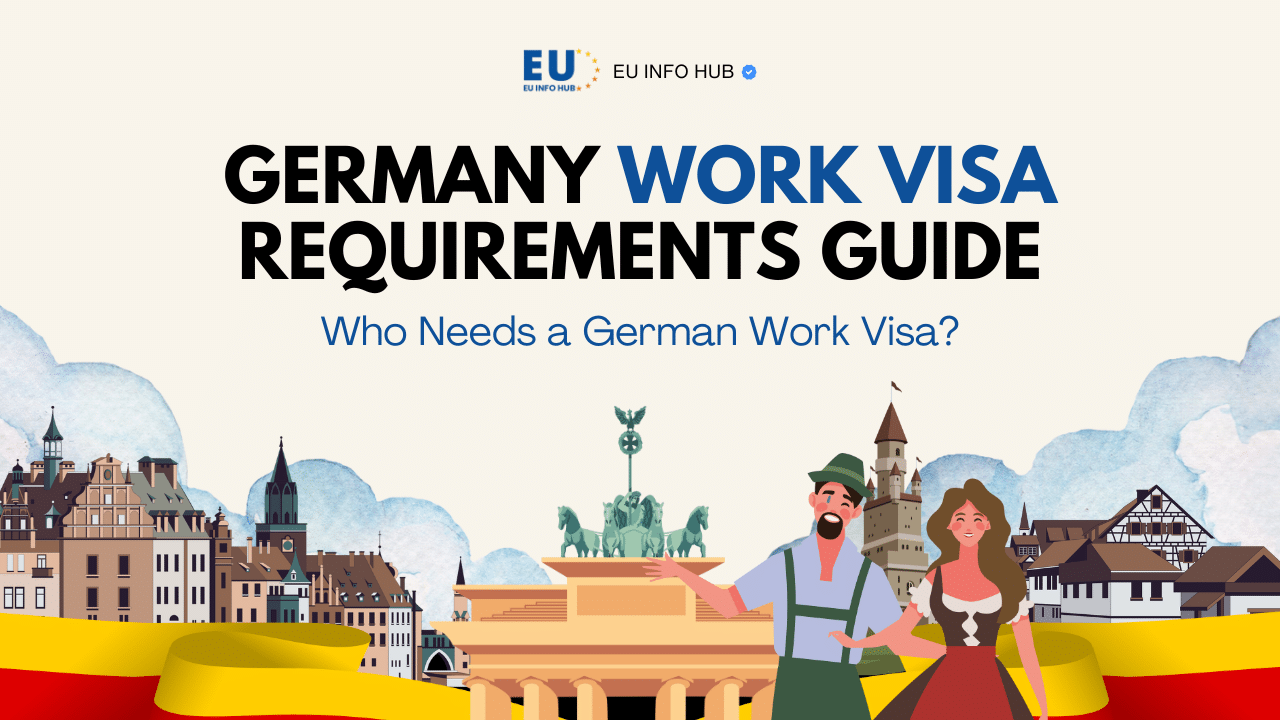





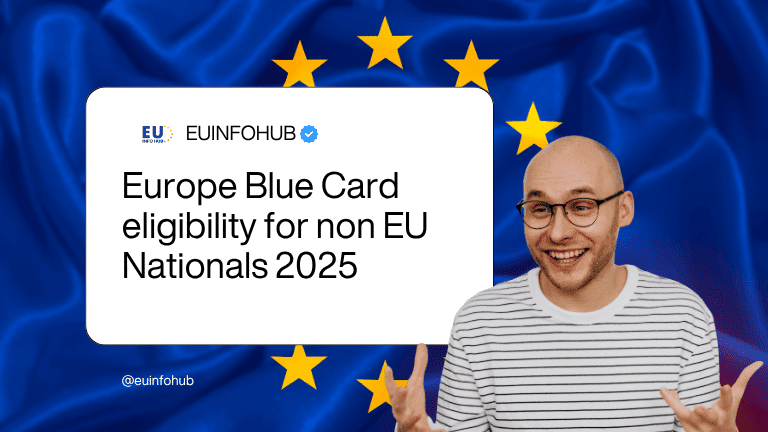


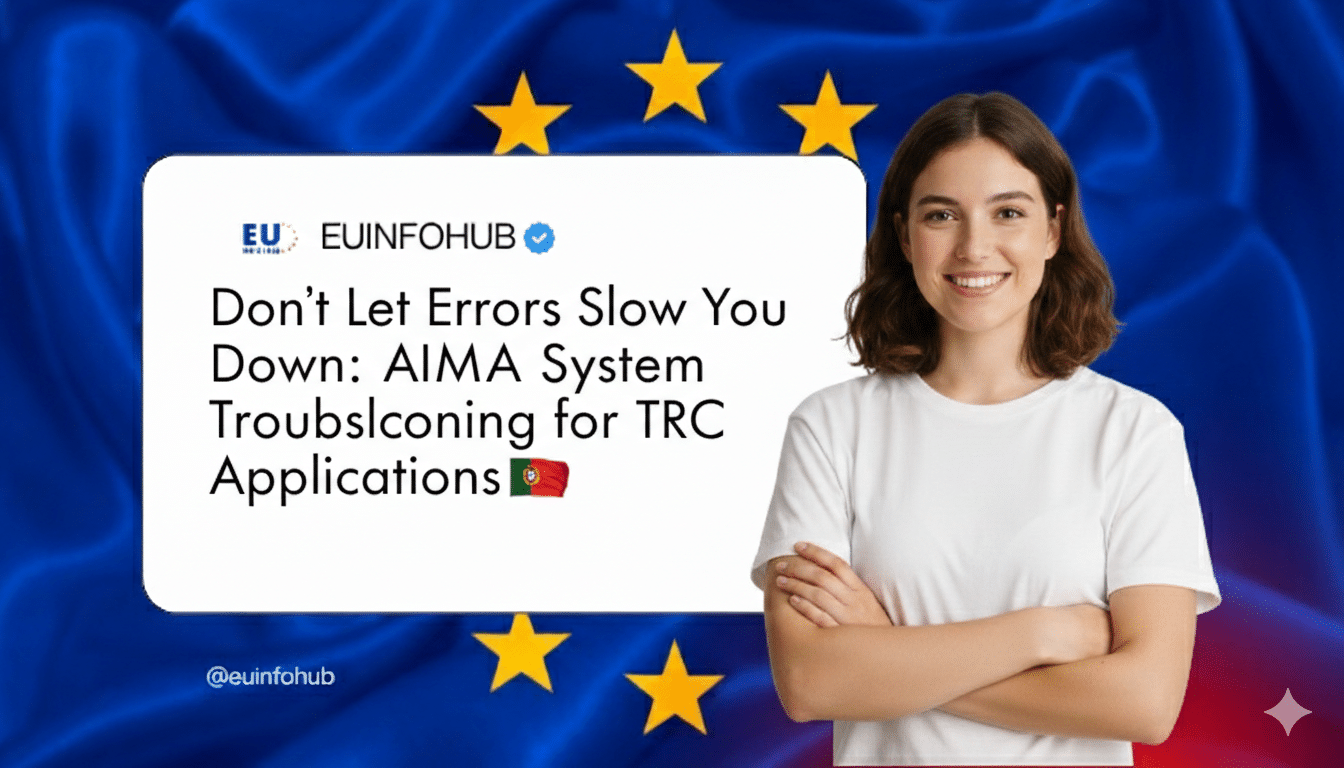


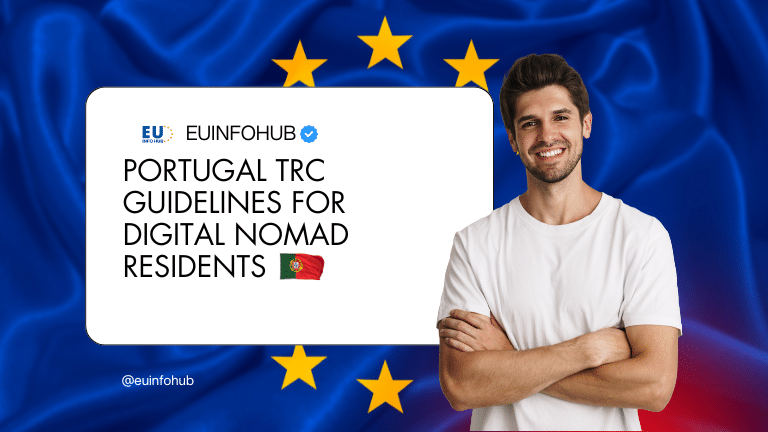


7 thoughts on “Germany Work Visa Requirements Guide”